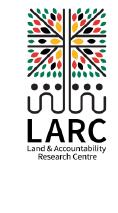Topics and Regions
Rick has over 40 years experience working in the land sector in Southern Africa. He is part of the Land Portal knowledge engagement team working to research and develop knowledge resources including data stories, blogs and in-depth country profiles for Southern, Central and Eastern Africa.
Rick is also a Senior Research Associate with Phuhlisani NPC - a South African land sector NGO and the curator of specialist Southern African land news and analysis website https://knowledgebase.land
He has just moved to the BlueSky social media platform @africaland.bsky.social
He has a PhD from the University of Cape Town. His research in Langa, Cape Town features as the central case study in a recent book Urban Planning in the Global South (2018), co-authored with the late Vanessa Watson, which examines the on-going contestations over land and housing in the rapidly growing cities of the global South.
Details
Location
Contributions
Displaying 401 - 410 of 470South Africans in rural areas are saying ‘no more’. Why it matters
The mainstream in South Africa is paying little attention to the world outside the cities. This is a mistake because the future of the country’s economy may depend on battles raging in its far-flung rural areas. The latest sign of this battle is an attempt by some in the governing African National Congress to pass the Traditional Leadership and Governance Framework Bill, which will allow traditional leaders to enrich themselves at the expense of rural people.
Communities must benefit more from mining — High Level Panel
Residents of mining areas testified at the Parliamentary High-Level panel on assessment of key legislation and acceleration of fundamental change about the acute disruptions caused in their lives and livelihoods by mining and their concerns are dealt with in several recommended amendments to legislation.
Kgalema Motlanthe’s High Level Panel calls for repeal of Ingonyama Trust Act
The Ingonyama Trust headed by Zulu King Goodwill Zwelithini kaBhekuzulu should be dissolved and the law that established it on the eve of South Africa’s liberation in 1994 should be repealed. This Act has effectively converted informal rural ownership rights to leasehold. Just days after the report was released, the Ingonyama Trust ramped up its campaign to persuade rural citizens to surrender their informal land rights to the Trust and to accept 40-year leases that could be cancelled for non-payment or other violations of the contract.
Land and Accountability Research Centre
LARC is a research and advocacy unit within the Law Department of the University of Cape Town concerned with power relations, and the impact of national laws and policy in framing the balance of patriarchal and autocratic power within which rural women and men struggle for democratic change at the local level. There has recently been a push from government to introduce laws and policies giving traditional leaders unaccountable powers over “subjects” living in the former homeland areas of South Africa.
Learning exchange on linking social protection with food security and agriculture-based livelihoods in Southern Africa
The Food and Agriculture Organisation of the United Nations (FAO), in collaboration with the Southern Africa Food Lab (SAFL) and Reos Partners organised a learning exchange aimed to deepening the understanding on the linkages between agriculture and social protection, focusing on lessons and experiences from southern Africa. The purpose of this learning exchange was to facilitate sharing and compiling of lessons learned in the design, implementation and institutional arrangements of linkages between social protection, food security and agricultural-based livelihoods, including good practice
Supporting smallholder agriculture
This research report contains an overview of two innovations that form part of a project called Supporting Smallholder Agriculture (SSA) conducted by the Southern Africa Food Lab (SAFL). The two innovations documented in this report simultaneously investigated market segmentation and standards - related challenges among smallholder farmers in two parts of the country.
The impact of the South African drought as experienced by small holder farmers
Between late 2014 and June 2016, South Africa experienced an El Niño-related drought, which various reports claim to be the worst meteorological drought in the southern Africa region in 35 years. In February 2016, the Southern Africa Food Lab (SAFL) commissioned a drought impact assessment (DIA) in the Mopani district of Limpopo province, as part of its Agro-ecology Awareness (AeA) project, and Supporting Smallholder Agriculture programme. This report provides the findings of this assessment.
Small holder farmers and organic agriculture in South Africa
This paper is a systematic review of published literature pertaining to organic agriculture in South Africa. The review gives an overview of the status of the organic sector in South Africa, in terms of both agriculture and market trends. The specific focus is on issues surrounding the development of smallholder farmers within the organic sector. The document includes three case studies of organic smallholder farming projects from around South Africa: the Heiveld Cooperative (Northern Cape), Ezemvelo Farmers’ Organisation (KwaZulu-Natal) and Siyavuna (KwaZulu-Natal).
Smallholder farmer market segmentation toolkit
This document provides an introduction to the Smallholder Farmer Market Segmentation Toolkit produced by the National Agricultural Marketing Council (NAMC) and the Southern Africa Food Lab (SAFL) during 2014 and 2015.
Supporting small holder farmers to enter the South African organic sector
The overarching aim of the study was to identify ways through which smallholder farmers could be supported to enter the sector.
The objectives of the project were to:


